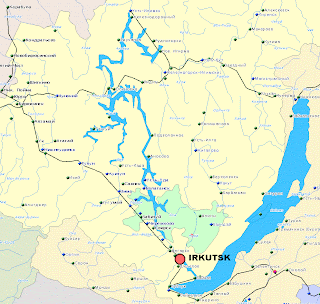
Irkutsk was founded in 1661. It is the administrative, cultural, political, economic and transport center of the Irkutsk region and Irkutsk area.
Irkutsk is located in the Asian part of Russia in territory of Eastern Siberia in 5042 km to the southeast from Moscow, in 2887 km to the northwest from Vladivostok, in 520 km to the north from Ulan Bator, and in 1650 km to the northwest from Beijing. Irkutsk is located on both river banks of Angara on a place of a confluence of the rivers Irkut and Ushakovka, in 55 km from unique object of the world heritage of UNESCO lake Baikal.
Climate of Irkutsk moderate sharply continental. Winter severe and long, weather in the winter almost always clear, summer damp and warm, cloudy. The climate of Irkutsk is softened with Irkutsk HYDROELECTRIC POWER STATION and other power stations of the Angarsk cascade: the average temperature of January is −18,3 °C, average temperature of July is+17,7 °C. The absolute maximum of temperature is fixed at level +37,2 °C (July, 1915), an absolute minimum −49,5 °C (January, 1915). The mid-annual temperature makes 0,6 °C, mid-annual speed of a wind — 2,1 km/s, mid-annual humidity of air — 72 %. The mid-annual amount of precipitation makes 472 mm from which more than half it is necessary for the summer period. The absolute maximum of deposits is fixed at level of 797 mm (1938), an absolute minimum — 209 mm (1884)
Population - 581 200
National structure - Russian (87%), Ukrainians (3%), Buryats (2%), Tatars (1%)
Etymology - The city's name occurs from river Irkut running into Angara.

